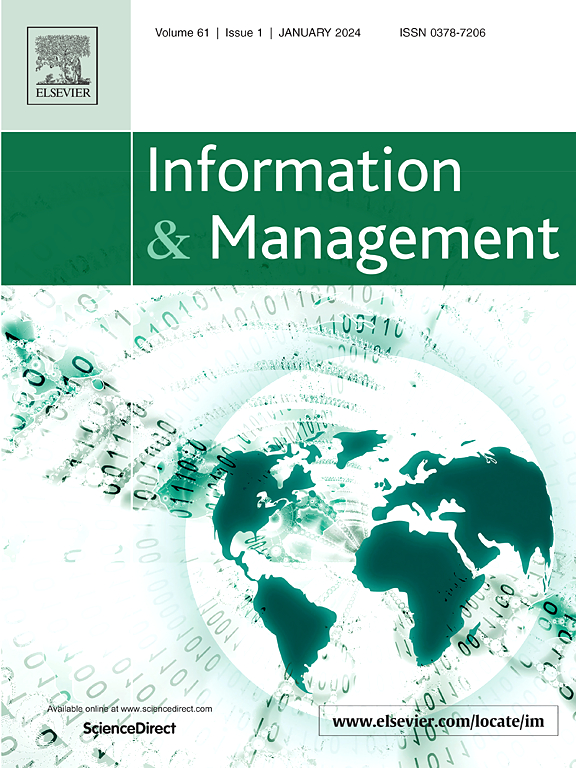Employee Participation in Digital Transformation: From Digitalization Sentiment to Transformation Predisposition
IF 8.2
2区 管理学
Q1 COMPUTER SCIENCE, INFORMATION SYSTEMS
引用次数: 0
Abstract
Digital transformation extends beyond mere technological shifts in business routines, models, or domains; it encompasses the profound evolution of employees’ attitudes and behaviors. Prior research on the microfoundations of digital transformation emphasizes that the essence of transformation lies in the individuals who drive it forward. To truly unlock this potential, organizations must harmonize sweeping changes with the individual needs and professional aspirations of their workforce. Achieving this balance is crucial to mitigating resistance and ensuring successful transformation. This study offers an empirical examination of how these dynamics unfold in practice. It begins by theorizing that employee sentiment toward digitalization is a key predictor of their predispositions toward digital transformation. The findings demonstrate that positive predispositions, in turn, can significantly enhance employees’ willingness to participate in digital transformation initiatives. This study sheds light on the individual microfoundations that underpin employee participation in digital transformation, revealing that these drivers are rooted in fundamental psychological needs, transcending geographical and cultural boundaries. The findings advocate for investments in employees’ psychosocial readiness and suggest viewing digitalization projects as strategic opportunities to cultivate positive experiences and attitudes, paving the way for future transformation initiatives.
员工参与数字化转型:从数字化情绪到转型倾向
数字化转型不仅仅是业务流程、模型或领域的技术转变;它包含了员工态度和行为的深刻演变。先前对数字化转型微观基础的研究强调,转型的本质在于推动转型的个人。为了真正释放这一潜力,组织必须将彻底的变革与员工的个人需求和职业抱负协调起来。实现这种平衡对于减轻阻力和确保成功转型至关重要。本研究提供了这些动态如何在实践中展开的实证检验。首先,从理论上讲,员工对数字化的情绪是他们对数字化转型倾向的关键预测因素。研究结果表明,积极的倾向反过来可以显著提高员工参与数字化转型计划的意愿。这项研究揭示了支撑员工参与数字化转型的个体微观基础,揭示了这些驱动因素根植于基本的心理需求,超越了地理和文化的界限。研究结果主张对员工的心理社会准备进行投资,并建议将数字化项目视为培养积极经验和态度的战略机会,为未来的转型举措铺平道路。
本文章由计算机程序翻译,如有差异,请以英文原文为准。
求助全文
约1分钟内获得全文
求助全文
来源期刊

Information & Management
工程技术-计算机:信息系统
CiteScore
17.90
自引率
6.10%
发文量
123
审稿时长
1 months
期刊介绍:
Information & Management is a publication that caters to researchers in the field of information systems as well as managers, professionals, administrators, and senior executives involved in designing, implementing, and managing Information Systems Applications.
 求助内容:
求助内容: 应助结果提醒方式:
应助结果提醒方式:


